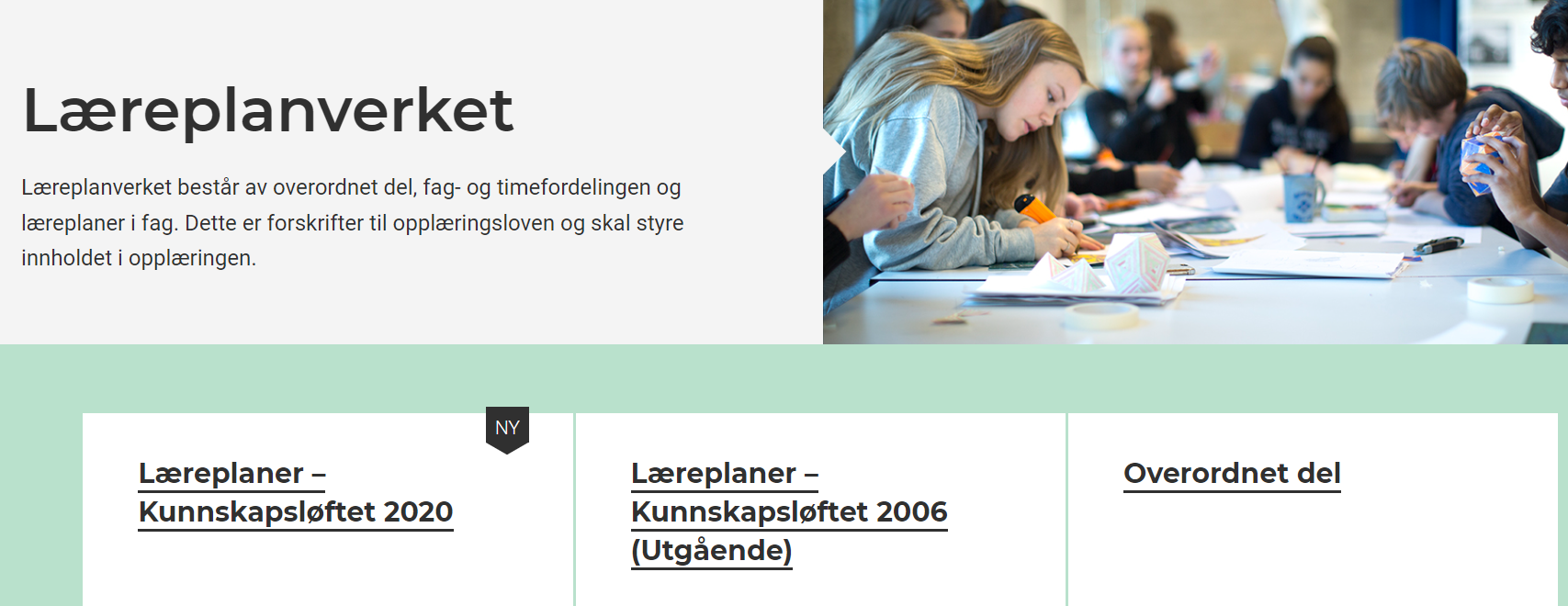Lifestyles and Education report from Norway
The Framework Plan for Kindergartens is a regulation on the contents and tasks of Kindergartens and the most recent version was adopted in 2017. One of the core values is sustainable development. Sustainable development is about how people who are alive today can have their basic needs met without denying future generations the opportunity to fulfil theirs. It is about thinking and acting locally, nationally and globally. Kindergartens shall help make the children understand that their actions today have consequences for the future.
The Education Act states that the pupils and apprentices must learn to think critically and act ethically and with environmental awareness. The core curriculum – values and principles for primary and secondary education and training – is part of the curriculum LK20 and LK20S that was adopted in 2020. The core curriculum elaborates on the core values in the Education Act and the overriding principles for primary and secondary education and training. Respect for nature and environmental awareness is part of the core values of the education and training. School shall help the pupils to develop an appreciation of nature so they can enjoy and respect nature and develop climate and environmental awareness.
The Parliament recently adopted changes to the Act relating to universities and university colleges in which the commitment to promote sustainable development is stated explicitly in the act for the first time. The Norwegian government's white paper on research Meld. St. 5 (2022-2023) Long-term plan for research and higher education 2023–2032 outlines the Government policy for research and higher education. The 2021-2027 programme places a strong focus on social inclusion and the green and digital transitions. The Government states in the white paper that it will continue its work to stimulate institution-based, long-term international collaboration.
Awareness of and knowledge about issues related to sustainable development and climate change has long been embedded in the Norwegian education system. Norway takes part in the 2030 Agenda for Sustainable Development and UNESCO's the Global Action Programme on Education for Sustainable Development. National indicators were suggested as part of the National Action Plan for the 2030 Agenda, and the government will follow up on the further development of national indicators for SDG 4 in cooperation with Statistics Norway.
In the sharing economy, consumers act as providers through participation in schemes that facilitate loans and lending, exchange circles, etc. At school, awareness of consumption is included in the topics of public health and life management and sustainable development. These topics are part of the curriculum that was put into use in autumn 2020.
As knowledge developer, the higher education institutions and the research sector have an important role in the work to create increased awareness of responsible consumption and the development of relevant knowledge bases for policy development. The Higher Education Institutions have an important role in learning about and developing new sustainable solutions for the biggest challenges facing society, both nationally and globally. The purpose clause of the Act relating to universities and university colleges specifies that the institutions must contribute to environmentally, socially and economically sustainable development.


